GONE GIRL Deciphered. Shrewd, Extraordinary, Unstable…

Both are incredibly spiteful. How does one tackle Gone Girl? Should it be considered at the plot level (and thus get angry at the ending) or ponder the symbolism? Should one hope for satire or accept the cold accuracy of a ruthless analysis? The mere existence of such dilemmas indicates that Fincher has created an extraordinary film open to interpretation and discussion. There is much to think about and write about. The question is, what, ultimately, can one accept, and does one even need to?
**WARNING! SPOILERS!**
A very unpleasant and sad analysis of a relationship was offered to us a few years ago by the film Revolutionary Road, with the book’s original likely being even more bitter and sad. The original idea of is similar: she and he view each other through the prism of their idealized expectations, unable to communicate. The failure of communication leads to a tragedy for which everyone and no one is to blame. Gillian Flynn and Gone Girl, however, go further. Here, the equation includes a mind that is both shrewd and extraordinary, as well as deeply unstable.

That’s where it begins: she and he. She is on the lookout for prey, while he, enchanted by her undeniable beauty, seizes the opportunity. He bluffs, charms, and ingratiates himself. She watches him with the cool eye of a seasoned seductress, allowing him to think he has the upper hand and advantage. In reality, she is satisfied. After all, she was looking for a conqueror with a strong character, ready to completely captivate her, love her madly, and admit how extraordinary she is. Amy is willing to sacrifice—she is ready to transform, adapt, and assume new colors in exchange for achieving her goal. To be what he wants to see. To embody his ideal vision. She is good at this—since early childhood, she has been the undefeated Amazing Amy. She plays every role, dons every mask according to her parents’ wishes. The deep desire for acceptance seems to be the driving force behind her actions—acceptance that requires her to continually recreate herself. Is this typical of a psychopath? Yes and no. A psychopath assumes various roles primarily to ensure maximum benefit: gain and comfort, admiration, and dependence from the surroundings.
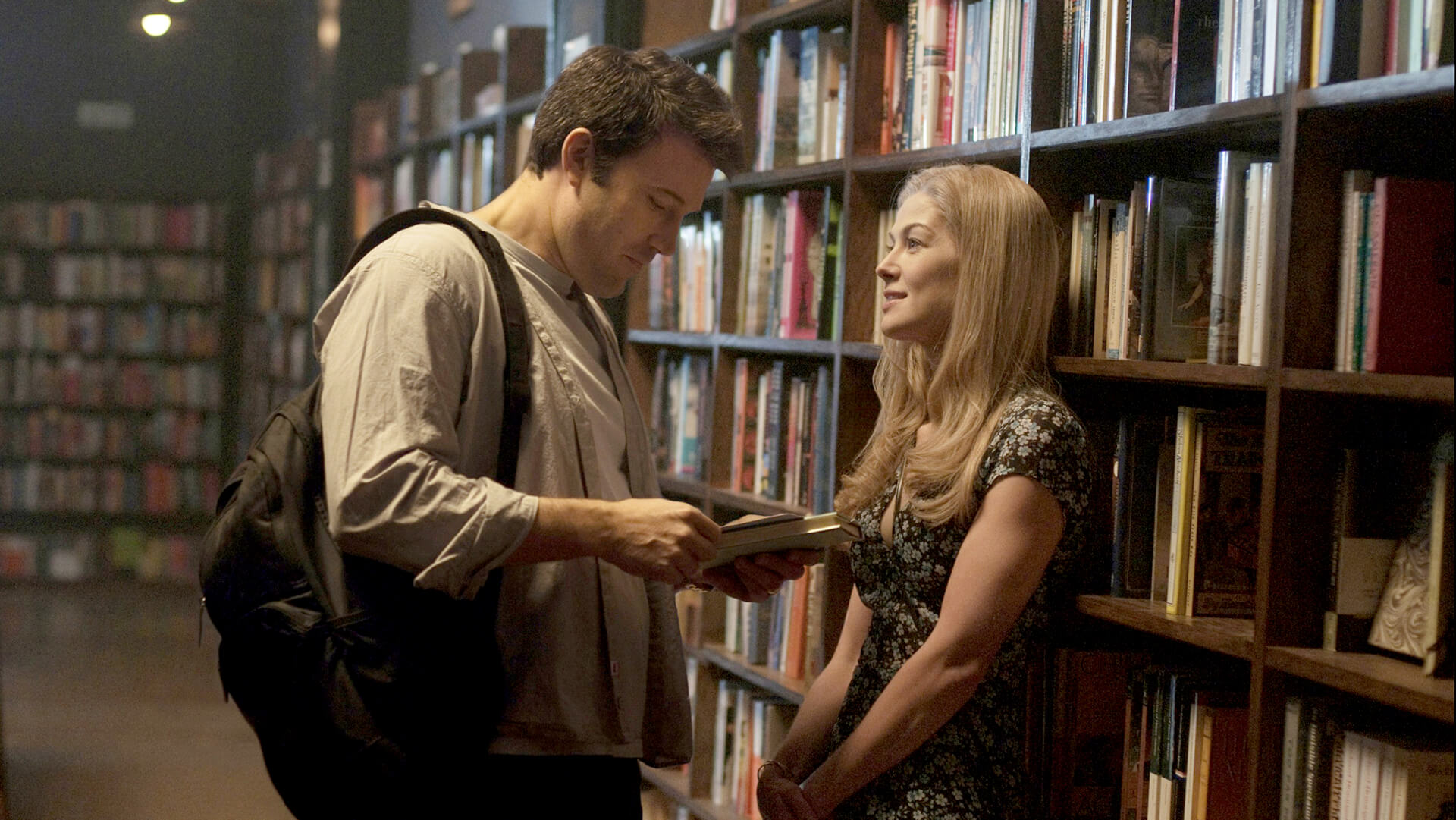
However, Amy has a certain emotional hunger, a need for belonging and acceptance beyond cold calculation. This woman wants to love, deeply and completely. But some damaged mechanism, a loose screw, makes it impossible for her. Undoubtedly, this is influenced by the cold and distant personality of her mother: we don’t see her often, but it’s hard to shake the impression that despite all of Amy’s manipulations, her mother is the purest psychopath in this puzzle. For her daughter, emotions are necessary, exist, and are desired. It’s just that life, well, life stubbornly deviates from the imagination, the ideal, and the textbook definition. A person who, in essence, does not feel, must save themselves with this: pure theory. And Amy wants to save herself. She hits a wall because practice and theory do not align; life does not correspond to idealistic visions. This awakens anger in her, and the anger turns into a desire for revenge. Nick has disappointed her so terribly. This alpha male conqueror turned out to be weak, lazy, and incapable of dealing with adversity. He sits on the couch, clinging to the console as if it were the Holy Grail, mooching, parasitizing, whining, and experiencing. And as if that weren’t enough, he takes a young idiot with rosy eyes to bed and thinks he is the king of the world.
Oh no. Never. Not if Amy has anything to say about it, and she has a lot to say.
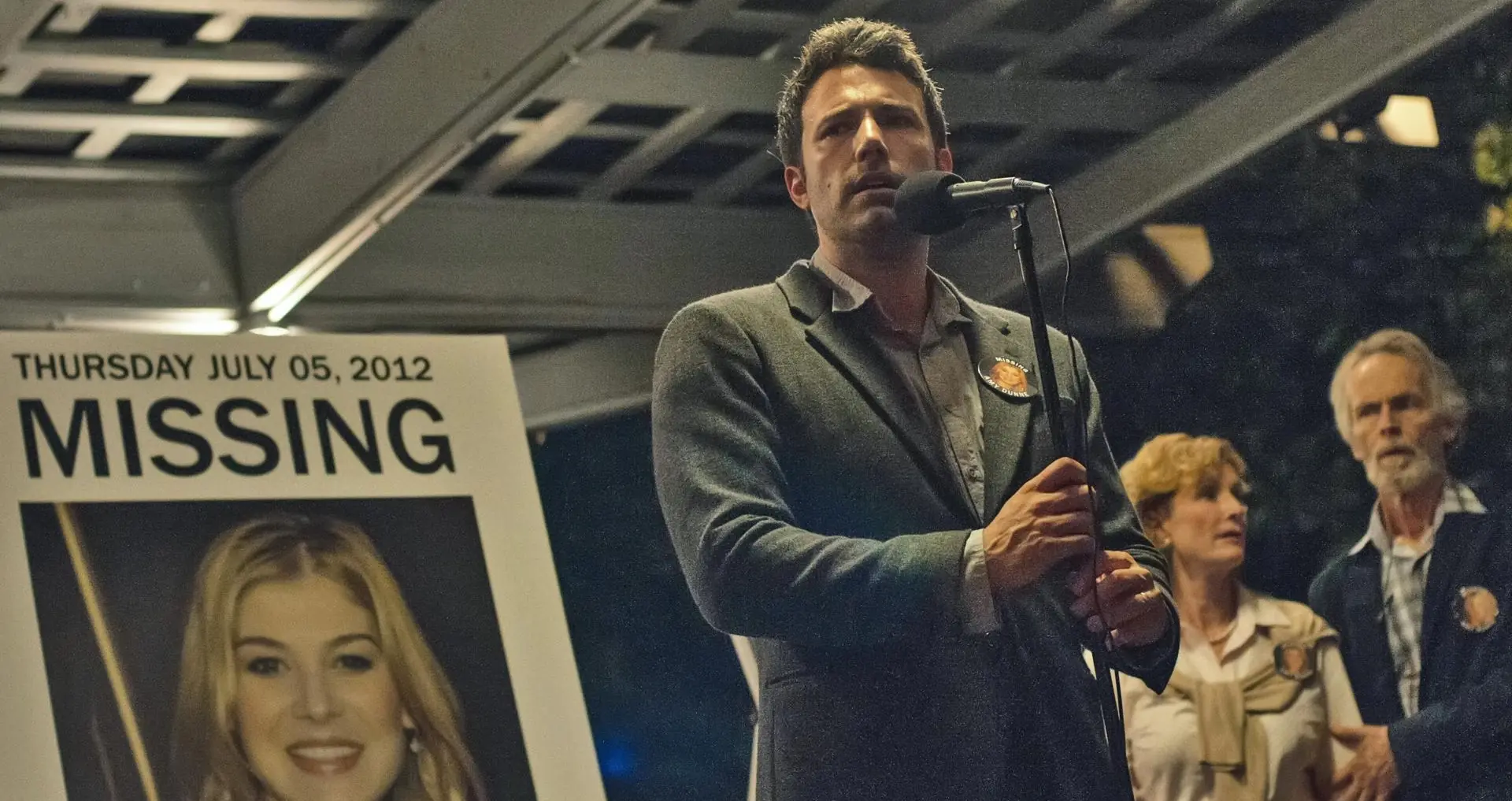
Oh, how one would like to be able to cheer Amy in this game. Firstly, we all know that women haven’t fared too well under Fincher’s direction thus far. A change would be welcome. Secondly… let the treacherous jerk who completely failed as a husband, whose role as a father is downright terrifying, finally get what he deserves. Let him suffer, let him be afraid. The gods know that there are enough women in the world who suffer the same, who are just as afraid and who, similarly, see no rescue from nowhere. On a smaller or larger scale—because who are we to measure emotions or place pain on a scale? Psychological violence, physical violence, yes, these are extremes, but there is also ordinary disappointment, disillusionment, a sense of unfulfillment, lack of acceptance, coldness, isolation, fear. The feeling of derealization when the most beloved person in the world turns out to be a stranger, a distant person. And so on. You might say—that’s not fair; it works both ways. A man can feel just as disappointed, terrified, and rejected. We make unfulfilled promises to each other, engage in mating dances, put on masks, change colors to attract, charm, and ensure victory. Both sides, driven by emotions, can be equally dishonest. And both can face disappointment when the meticulously crafted costume simply no longer fits.
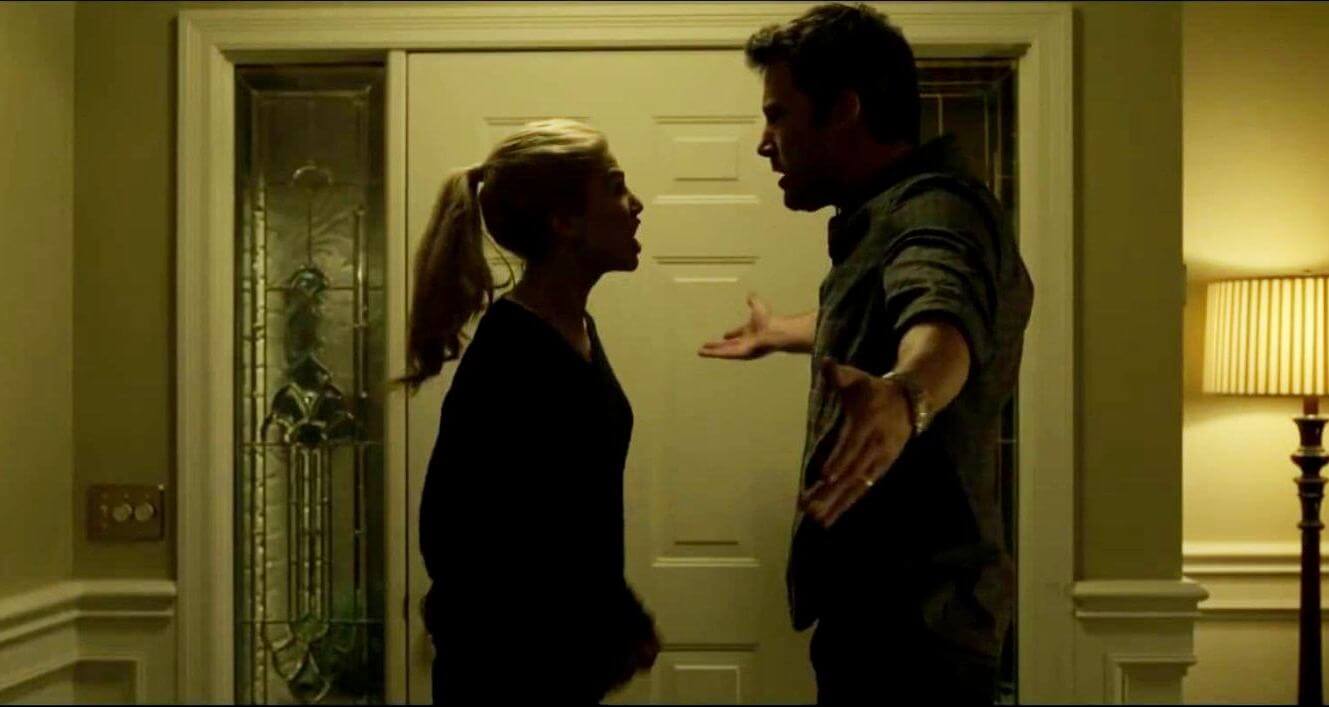
But don’t worry. The director remembers this, and so does his screenwriter. They won’t let us root for Amy because it is simply impossible to wholeheartedly support a manipulator who, with perverse, stubborn meticulousness, plans to frame her husband for murder. A woman whose cold calculation goes so far as to be able to include and exploit archetypes and weaknesses functioning in society. “It’s always the husband,” “the drama of the pregnant woman,” “violence has many faces,” “men have it easier”… Amy can count on the media and uses it without batting an eyelid. Her husband does the same, looking straight into the camera and saying, “I’m sorry.” However, at this moment, it no longer matters that he actually has something to apologize for. What matters is that he is fighting against the cold plan of a cunning psychopath, and we root for him.
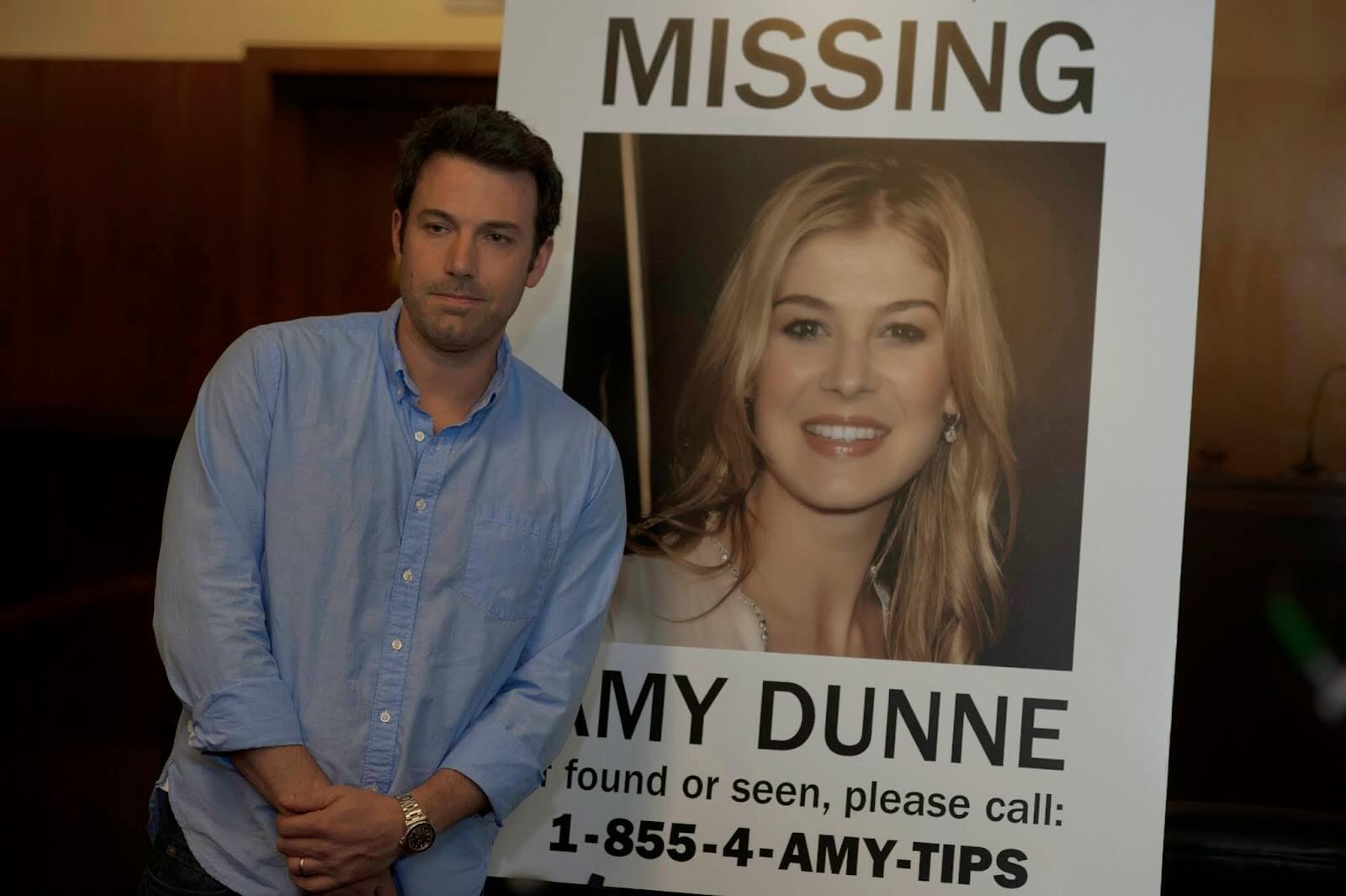
As I mentioned at the beginning, it’s spiteful. And devilishly perverse. Somewhere along the way, a theme undermines Amy’s one hundred percent psychopathy: she sincerely considers closing the chapter through suicide. Annihilating oneself, the only truly significant entity in the world? Unthinkable for a psychopath. Is she so hurt? Is she suffering? Is she experiencing her harm on an emotional rather than purely practical level? Or does she believe she should feel that way, hence the question mark in her calendar of events? Amy is a writer, after all. She creates a plot, considers possibilities. She treats herself like a character in a novel—what should I do, what should I feel, where should I go? Just like when she met Nick when she presented him with several possible options to choose from. She probably would have followed whichever he chose. She would have recreated herself according to what he imagined. And she expected him to be able to act according to a similar pattern. He couldn’t, and that’s what she couldn’t forgive him. That’s his fundamental betrayal: stepping outside the character.

She is, therefore, delighted when suddenly her vision, her ideal, reappears. I love you, adore you, you are unique, come back. I miss you; I can’t imagine life without you. Finally! Finally, Nick is as he should be! And he has what he wanted. Desi, being the next one who didn’t measure up—ergo, deprived Amy of ultimate control—has to go. And so we come to the ending, so reluctantly received by viewers. Nick stays with Amy, with pregnant Amy, with a plastered smile, announcing on television that they will be parents. He even agrees to all the demands she presented. What?! Why?!

She could have divorced him and that’s it, some say. He could have divorced her, others say (and they’re right; he planned to leave). Was she supposed to divorce him? She convinced herself that she loved him very much. Nick’s sister, Margo, with horror, states in the finale, “you don’t want to leave her.” Nick is motivated by his upbringing, an absent, cheating, lying father, as much as Amy is by the coldness and manipulation of her mother. He doesn’t want to leave because he can’t imagine fulfilling the hateful pattern of his own father. A father who was supposed to be a spy in the wide world. A father who shakes off his son’s hand from his own shoulder and says to leave him alone.
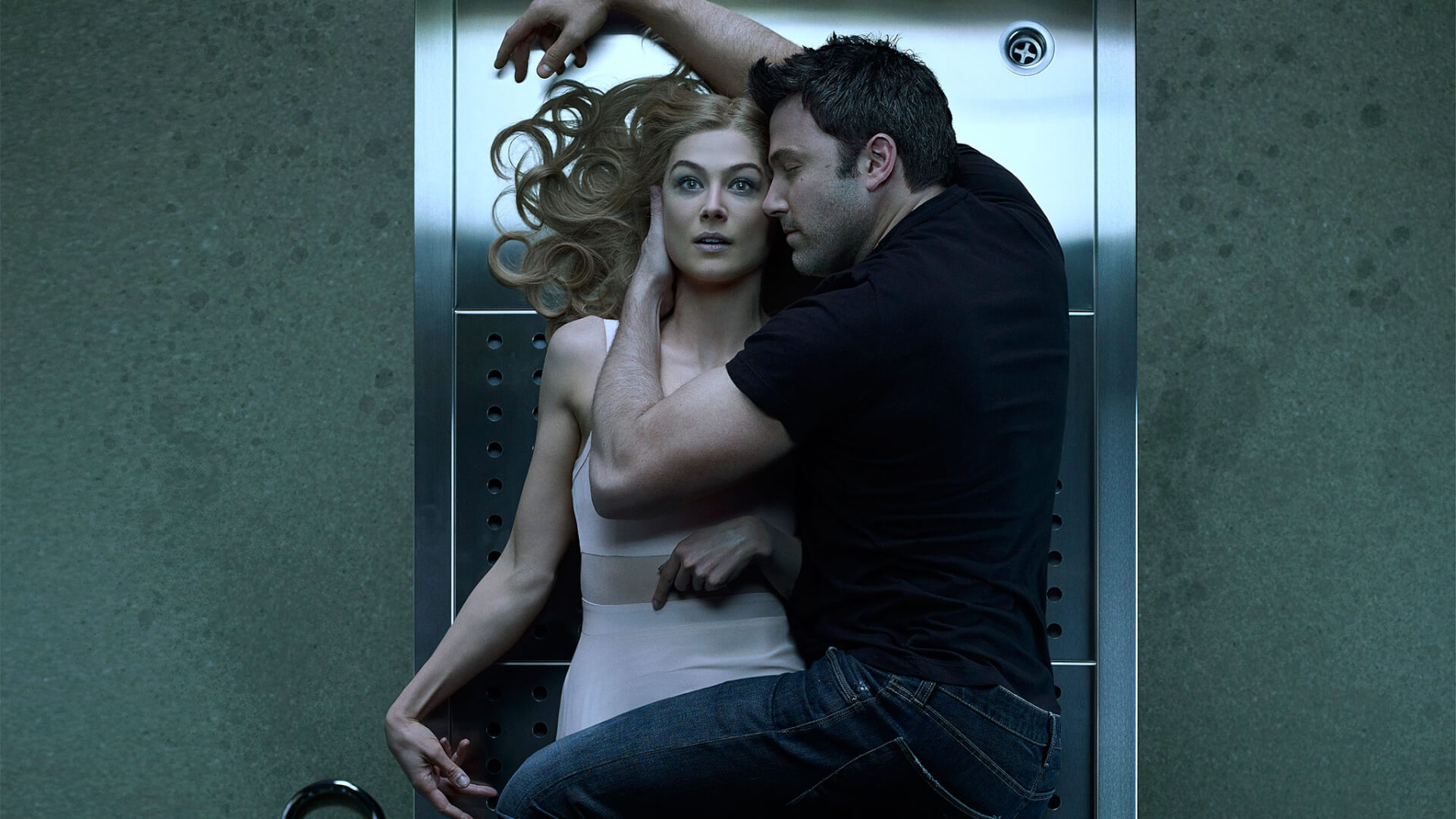
Nick’s vision ultimately turns out to be as fanciful as Amy’s. And perhaps that’s what ultimately holds them together—the helpless stubbornness to cling to vision, not reality. Unrealistic imaginations. Ideals without a happy ending. A father—as needed. A wife—by definition. A husband—as assumed. A mother—as written. They will stew in their toxic arrangement endlessly, and it’s not blackmail at all. It’s a choice. After all, they are both writers.

